|
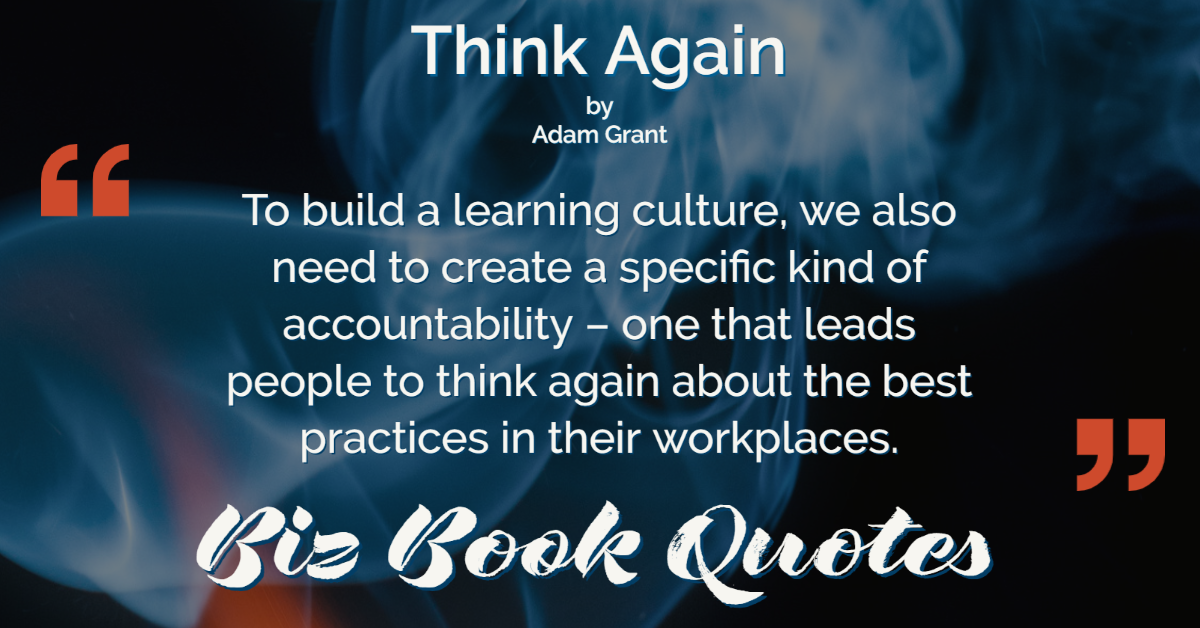
|
Think Again:
To build a learning culture, we also need to create a specific kind of accountability – one that leads people to think again about the best practices in their workplaces.
|
216 |
|

|
Think Again:
Organizational learning should be an ongoing activity, but best practices imply it has reached an endpoint. We might be better off looking for better practices.
|
216 |
|

|
Think Again:
Along with outcome accountability, we can create process accountability by evaluating how carefully different options are considered as people make decisions.
|
217 |
|
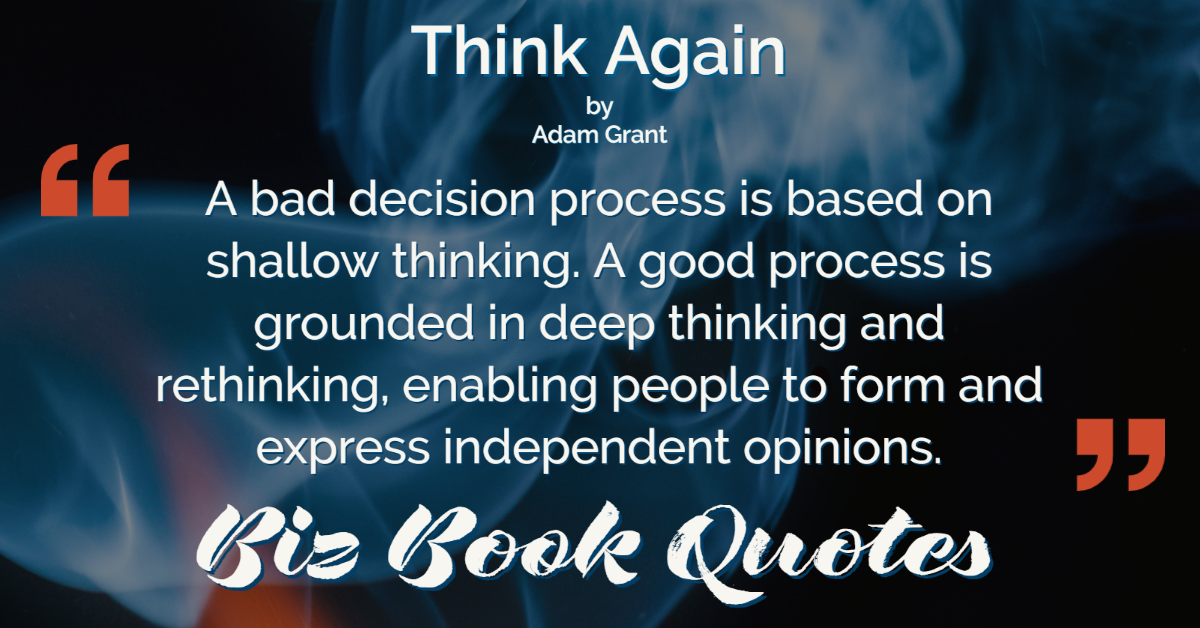
|
Think Again:
A bad decision process is based on shallow thinking. A good process is grounded in deep thinking and rethinking, enabling people to form and express independent opinions.
|
217 |
|
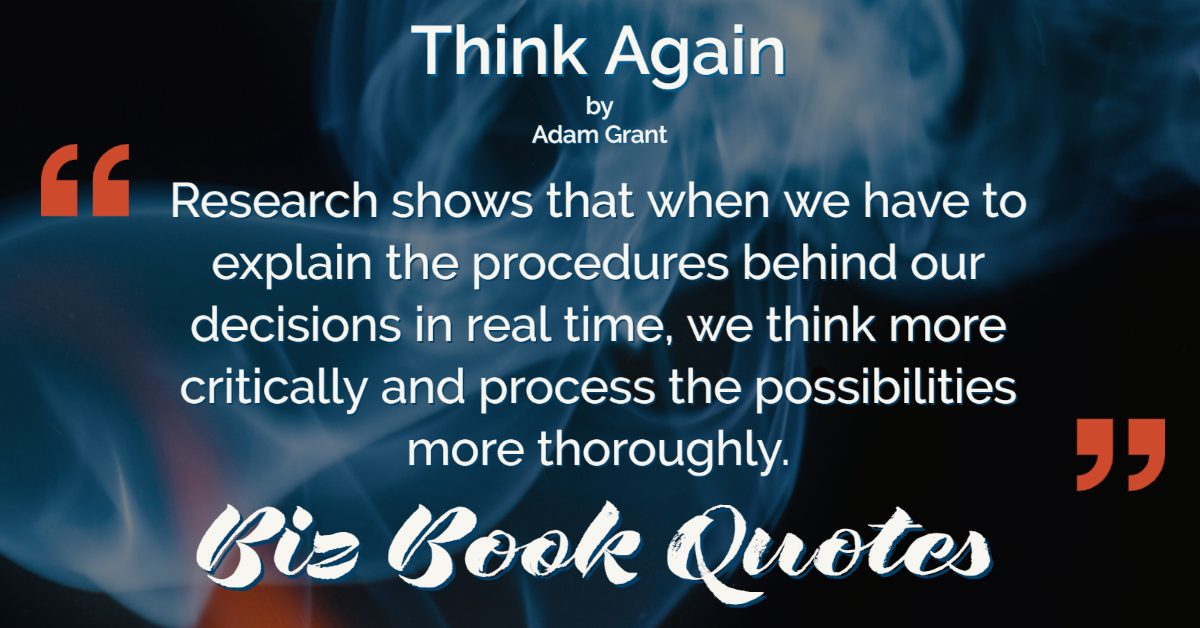
|
Think Again:
Research shows that when we have to explain the procedures behind our decisions in real time, we think more critically and process the possibilities more thoroughly.
|
217 |
|
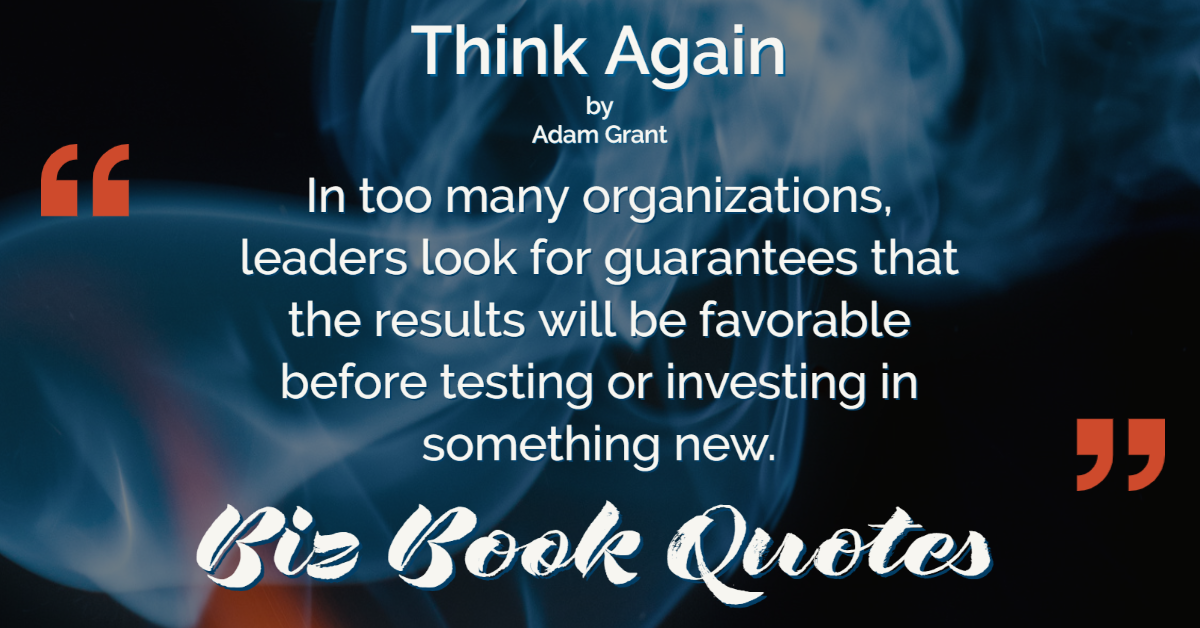
|
Think Again:
In too many organizations, leaders look for guarantees that the results will be favorable before testing or investing in something new.
|
219 |
|
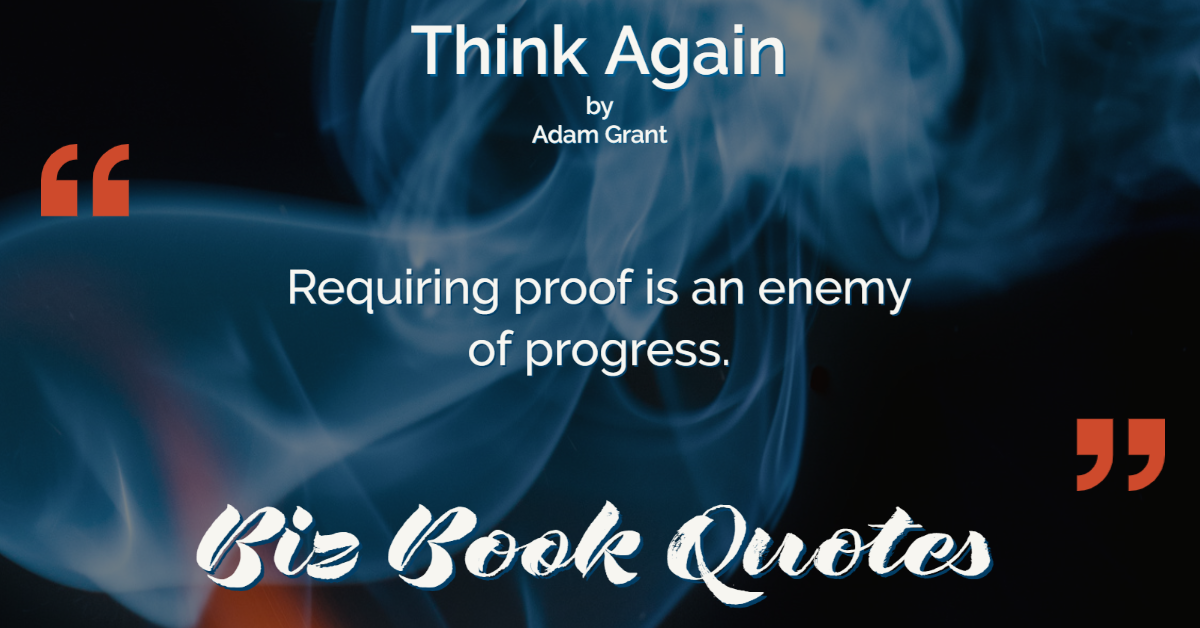
|
Think Again:
Requiring proof is an enemy of progress.
|
219 |
|
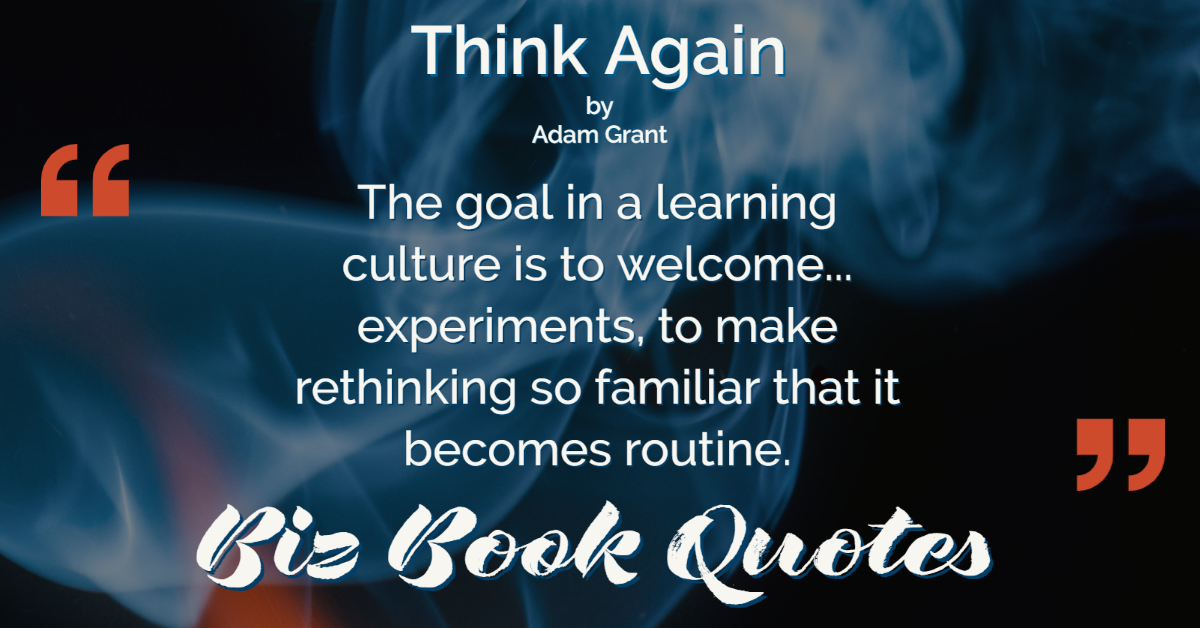
|
Think Again:
The goal in a learning culture is to welcome these kinds of experiments, to make rethinking so familiar that it becomes routine.
|
219 |
|
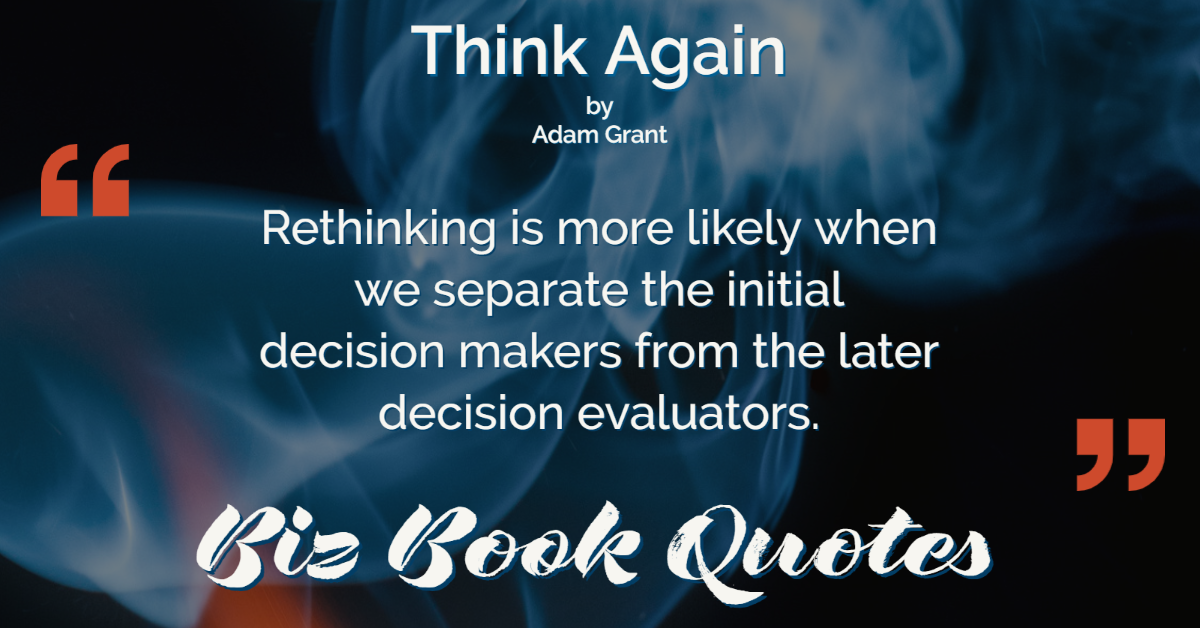
|
Think Again:
Rethinking is more likely when we separate the initial decision makers from the later decision evaluators.
|
219 |
|
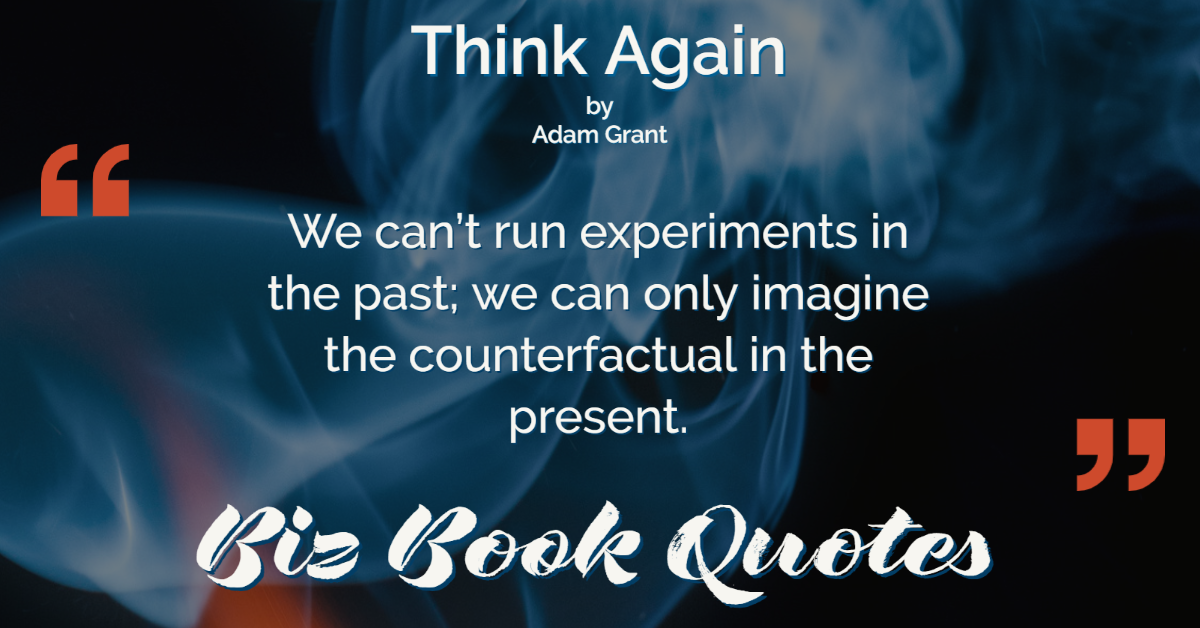
|
Think Again:
We can’t run experiments in the past; we can only imagine the counterfactual in the present.
|
222 |











